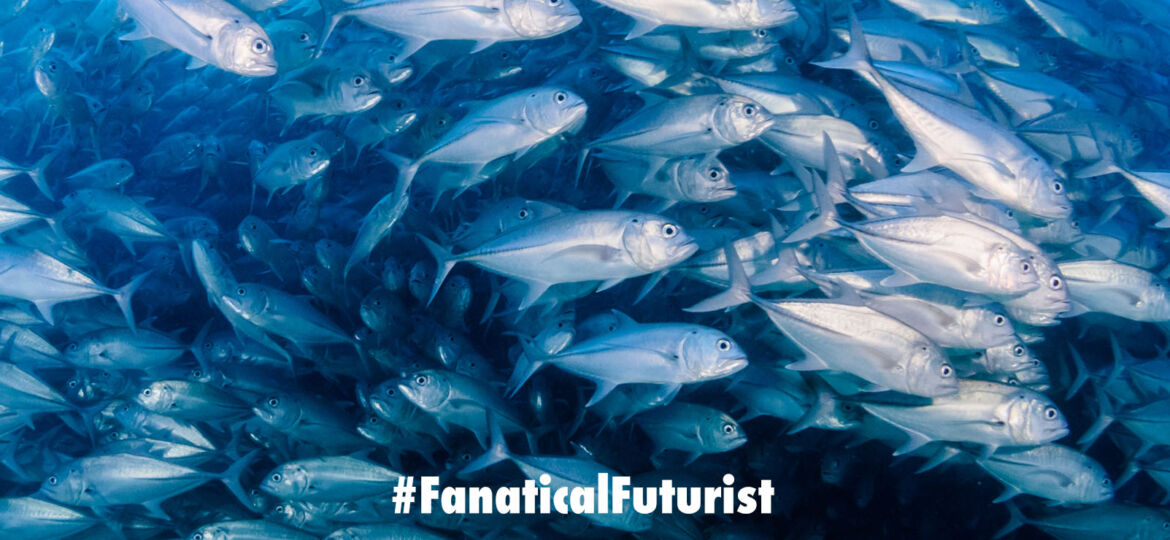
WHY THIS MATTERS IN BRIEF
As the Earth’s population and its appetite for protein grows this latest breakthrough will help alleviate famine and hunger.
We are on the cusp of a food production revolution, one that could eradicate global famine and let us make food, of all types, from vegetables and fruit, to dairy and meat, on demand anywhere we want it. And it’s a field of emerging technology that readers of my blog should, by now, be very familiar with.
Last month Burger King and start up Impossible Foods introduced the Impossible Whopper, a plant based burger intended to win over meat lovers, vegetarians and vegans alike. And the announcement went viral – a prime example of just how much interest there is in the relatively new field of artificial meat. But a plant based burger, well, that’s great, but it pales in comparison to what’s emerging elsewhere, so let’s run through it and then get on with the exciting new news about a new food production technology that I’ve been anticipating since robots met lasers met AI met salmon a couple of years ago.
Learn more about Finless Foods
Today I can walk you around the floors of multiple companies around the world who are creating what’s known as Clean Meat – real authentic meat grown from real animal stem cells in bioreactors, not plant based “fake” meat, whose product lines now include everything from genuine steak and beef, to chicken, duck, and turkey, and much more. And the same’s true for companies using the same technology to create dairy products without the cow, and even leather.
However, while the complimentary appearance of fully autonomous vertical farms, that let us grow huge quantities of organic vegetable produce with no chemicals and 99 percent less water, and new Clean Meat products like those I mentioned emerge there’s one category of foodies who, so far, have been left out in the cold – fish lovers. But now they too can rejoice because several companies have managed to, in their words “figured out how to grow sustainable seafood, without the catch.” And it’s a neat play on words – for reasons you’ll find out now.
As the world’s fish stocks continue to decline and come under increasing pressure next generation food production companies in the US have now turned their attention to fish, and a couple of them have just shown off how they can make real fish meat, including Tuna and Salmon, without the need to rear or farm fish. In fact the closest that this fish meat has gotten to the water is the local lab’s water fountain.
Producing fresh and safe seafood without harming marine biodiversity is just one of the challenges that the small number of startups are tackling.
The word “nalu” in Hawaiian can be a noun meaning the waves of the ocean, or a verb that evokes being mindful, so it was apparently a perfect choice as a brand name for BlueNalu.
Now, according to BlueNalu, we don’t have to rely solely on farm-raised or wild-caught fish to eat seafood products any longer. Instead, the company produces lab-grown seafood that it claims is as healthy and tasty as conventional seafood.
In BlueNalu’s case their cellular aquaculture technology grows seafood from living cells that were isolated from real fish and cultured, then assembled into marketable fresh and frozen seafood products.
“We plan to reduce fishery pressure, displace the need for imports, create jobs, and enhance food security in each country in which we go to market, in a way that is healthy for people, humane for sea life, and sustainable for our planet,” said Lou Cooperhouse, BlueNalu’s president and CEO.
Currently, there are only six startups worldwide that are focusing on cell-based seafood, and three of them are based in California. The other two, companies besides BlueNalue, are Finless Foods and Wild Type.
Founded by two young vegetarians and environmentalists, Finless Foods produced in-vitro fillets of bluefin tuna. They take cells from living bluefin tuna and let them multiply in a culture medium that contains all the necessary nutrients for growth.
Wild Type, a San Francisco-based company, also uses cellular aquaculture tech and is primarily focused on cell-based salmon meat.
The company, which has raised $3.5 million in seed funding, was co-founded by a former US diplomat in Afghanistan who saw food insecurity first hand and decided to do something once back home.
Each of these companies is at different stages in developing their projects and while all can present test products now, they’re not ready yet to market them, and we’re likely at least five years away from seeing actual cell-based seafood products on the shelves.

















[…] Furthermore, at the new price point, cellular meat like bacon, beef, chicken, duck, tiger, and even salmon and tuna steaks, could very easily undercut the price of meat sourced by culling […]